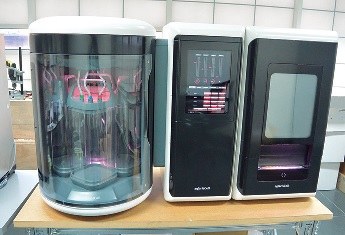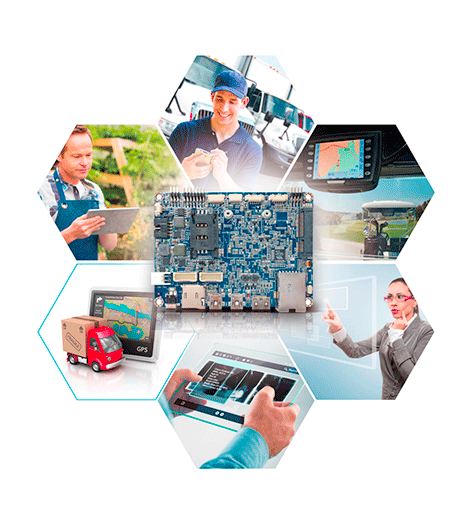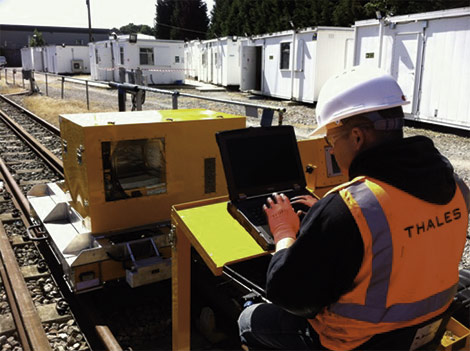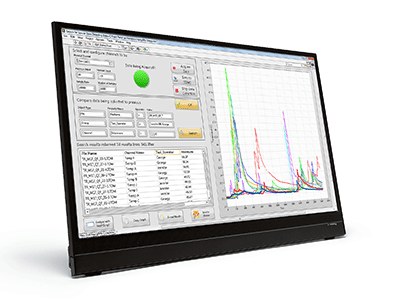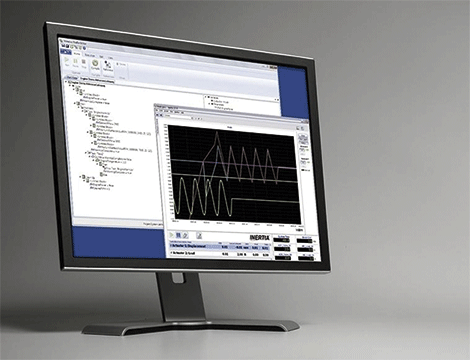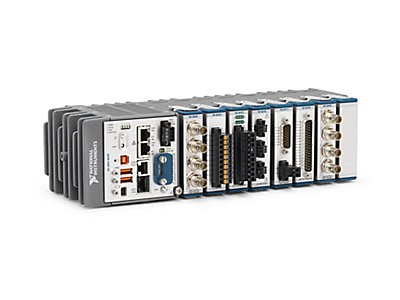“Using CompactRIO hardware and LabVIEW software allows direct portability of our software architecture and channel requirements to the Single-board RIO system. This allows the control to be implemented in a more compact and suitable system for the manufacture and distribution of the product directly and without significantly increasing development times and costs.” – Gonzalo de Aranda Izuzquiza, Aglaris Cell SL
The challenge
Automate the production of large volumes of mesenchymal stem cells through the use of iterative cell culture processes and monitor the parameters that define the quality and integrity of the cellular material for its subsequent implantation in patients undergoing regenerative medicine therapies.
The solution
Carry out effective control of different actuators (flow control, movement, temperature...) as well as obtain sensor readings of various technical specifications thanks to the modularity provided by the C series products (analog and digital I/O, serial ports... ) along with the robustness of the CompactRIO system (NI cRIO-9066) using LabVIEW Real Time software. Due to the rise and hopeful projection of regenerative medicine therapies in the treatment of degenerative diseases, cancer or the reconstruction of damaged tissues and biological organs, the need arises to obtain large volumes of cells to be used as raw material in medicines. That is why cell production methods have to be designed that can not only supply us with large amounts of cell material, but also guarantee that the product meets the high quality standards necessary for the subsequent use of cells in patients. At Aglaris Cell, an automatic bioreactor has been designed for the cultivation of mesenchymal stem cells (figure 1), cells that can constitute a wide variety of biological tissues of great importance in the human organism, such as cartilage or cardiovascular tissue. The design of an iterative culture process and the use of micro-particles as culture surface allow optimizing cell production and obtaining large volumes. Space optimization is necessary since it is a piece of equipment intended for use in hospital laboratories and research centers, with significantly smaller dimensions than those of large industrial spaces. To obtain the cell product with the desired quality, the system must be closed, sterile and monitored. The culture must be supplied with a culture medium that meets the optimal conditions for its development, such as the presence of specific macro-molecules or gases in solution. These parameters are monitored by various sensors, and their reading determines whether the medium in use is suitable for the crop or, on the contrary, it must be discarded and the crop re-supplied. The equipment consists of three fundamental interconnected operating modules:
Media conditioning module
The culture medium tanks are stored at 4ºC with the conditions required for the process, such as the concentration of dissolved gases. This medium will be available throughout the process, since the temperature allows it to preserve its properties.
cultivation module
In addition to finding the consumable cartridge in which the culture is carried out, this module has actuators that regulate culture conditions such as temperature or agitation. In addition, the consumable cartridge includes sensors, also consumables, that monitor physical-chemical parameters of the culture, such as pH, the concentration of glucose in the medium or the presence of dissolved oxygen.
Control module
Control the action of the various actuators in the system and the reading of the sensors with the cRio-9066. In addition, it serves as a communication between the user and the system through the user interface and has actuators that mainly regulate the flow of liquids and gases.
control hardware
To carry out precise control and monitoring and comply with the quality regulation standards required for a system for medical use, real-time hardware from the compactRIO line (cRIO-9066) (figure 2) is used, with the following C-series modules :
• NI 9421 (Digital Input): Positioning and binary status sensors.
• NI 9472 (Digital Output): Two-state valve control and temperature control.
• NI 9203 (Analog input). Sensors of pressure, temperature, components of the culture medium.
• NI 9263 (Analog Output): Perfusion flow controller.
• NI 9871 (RS485 serial ports): Controllers and flow sensors, motors. The variety of C-series modules allows modular progress in prototyping tasks without high cost increases.
Software
The program consists of two real time modules. One for data acquisition and another for action and cultivation routines. The data acquisition module collects information from all the sensors that monitor the system parameters on a regular basis. When a parameter goes out of its specific range, the module transfers that information to the actuation and routines module, which will give the orders to the necessary actuators to react and then continue the cultivation process. In addition, the user can communicate with the Real Time Device (cRIO) through a user interface. The use of the Lab-VIEW Real Time software makes it easy to program the system in compliance with the strict GMP quality regulations that equipment for medical use must comply with. There must be correct traceability of the process and data, as well as the full definition and execution of priorities throughout the process. In addition, the use of CompactRIO hardware and LabVIEW software allows direct portability of our software architecture and channel requirements to the Single-board RIO system. This allows the control to be implemented in a more compact and suitable system for the manufacture and distribution of the product directly and without significantly increasing development times and costs.


